A quick introduction by way of Brian's official bio: As an education specialist, father of two, and a former middle school English teacher, Brian Herberger is immersed in the world of young adult fiction. In his debut novel, Herberger builds on his knowledge of this genre, drawing on themes that have piqued the interest of his students for more than a decade as they too come of age. He draws on childhood memories of flying with his father and combines them with his love of history to create a story that is exciting, meaningful and fun. Originally from Buffalo, New York, Brian now lives, reads, and writes in the Washington, DC area.  Hi Brian, thanks for taking the time for this interview. Can you start by telling our readers a bit about yourself and your background? I worked in schools for almost twenty years - first as a middle school English teacher, and then supporting teachers with technology in their classrooms. I loved both jobs! I now work for the same school system in their central office, analyzing English Learner data. It’s not as much fun as discussing books with middle school students or reading their writing, but it’s interesting and creative in its own way. I still consider myself an educator, and my heart will always be in middle school. Writing a YA novel is a nice way to get back into schools and work with students again. I would love to know more about your journey as a writer. Have you been writing since childhood? What got you started? I think I always saw myself as a writer. I enjoyed writing assignments in middle and high school, and I had some great teachers who were always encouraging - teachers who made me think and question and reconsider. I kept writing in college, mostly short stories and poetry. All of those environments - middle school, high school, and college - were good places for experimenting with writing, classes where everyone was expected to share. There was a built-in audience, and feedback was easy to come by. A year or two after I was out of college I tried writing a novel. I’d never written anything that long before, but I stuck with it. It was a good story - at least I thought so, but it wasn’t very good writing. I gave it to a few friends to read, but that was it. I started another a year or two later, but never finished it. Maybe I’ll pick it up again some day. Then it seems that I took a five year break from writing around the time my kids were born. There just wasn’t time to write anymore. I did get to read a lot of YA with my students and work with them on their writing, and that was a good substitute. Then four or five years ago I got an idea for a book that I was really excited about. The idea gave me goosebumps! Weeks went by and I was still thinking about it and still excited about it, so I started researching and then started writing. Miss E. took me about three years to write, but I was doing most of the writing at night after my kids went to bed, and I was really only writing when I felt like it. But all that time, I stayed excited about the story and I felt good about the writing - I liked the voice I was using and the characters I was creating. About halfway through, it stopped being “just for fun” and I knew it was good enough to take all the way to publishing. What is your process as a writer? I’m a big fan of simply getting the story onto the page and then going back later to edit and fix mistakes. I never took a typing class so maybe that slows me down a little, but on a good night writing flows as fast as reading. That speed feels natural. Dialog is written at the pace of a conversation, and the story unfolds like watching a movie. If I’m struggling over what to write or how to write it, starting and stopping, changing sentences right after I write them, that’s probably going to be a section I go back to, revise, or rewrite entirely.
I learned a lot once it was time to edit Miss E. I’d never worked on revising a piece of writing that long. We typically think of editing as moving very carefully through a piece of writing, looking for mistakes, making sure a sentence says exactly what we want, tying this word and that word until it’s just right. But it’s also looking at the whole story, start to finish. Consistency is so important - not details like names or character traits, those are easy to keep track of. Things like maintaining a consistent voice are harder. Miss E. is narrated by the main character, Bets. I knew her voice would be an important part of her character, because readers get more than just the story through Bets, they see her thought process, her opinions, and her feelings. I wanted to make sure her voice was consistent, so that the character starts to feel like someone we know, and as her character evolves, we feel the change in her. That takes rereading the book start to finish many times and carefully considering how each part fits into the larger story. As you were a classroom teacher for many years, what strategies and ideas do you have for teaching writing? My priority was always to make writing enjoyable for students. Writing should be fun; it shouldn’t feel like work or just a task that needs to be completed. So how do we make it fun? Start with an open ended prompt or assignment. Give students a wide range of choices in what they write about so there's room for them to find an idea they’re interested in. Selecting a writing topic should be like walking into a bookstore and choosing a good book - lots of choice, find something you're excited about. Next, the revision process needs to be focused on improving the writing and not on finding mistakes. A list of errors isn't helpful, and honestly, our computers and other devices can proofread for spelling, punctuation, and grammar. Feedback from peers and teachers should be at a higher level. How did the writing make you feel? What surprised you? What parts confused you? What do you like about this character? Is this scene believable? Answers to questions like that make for valuable feedback. I'd also suggest having students consider some questions they'd like answers to before giving their writing to someone. I did the same when I shared early versions of Miss E. and that made the feedback very helpful.
What recommendations would you give to teachers for incorporating writing across content areas? Incorporating writing across content areas is always a challenge. At a minimum, there needs to be collaboration between English teachers and the teachers in other content areas to communicate writing expectations. Students should know that the expectations for writing in English class are consistent in other classes as well. Teachers can also find areas of the curriculum that overlap. If social studies students need to know how to write a thesis and support an opinion, and those writing skills are also taught in English, there’s an opportunity for teachers to collaborate and support their students’ learning in each of their classes. What is your advice to kids who want to be writers?
Next step? Write! Not everything you write will be great. Some of it will be awful, but it’s practice. You'll start some stories and lose interest, or you'll decide you need to hit the delete key and start all over again. It's practice, and you will get better each time. Develop something until it's polished enough to share, and then get some feedback. Repeat. Eventually, you'll be in the middle of writing something, and you'll reread it and think to yourself, “Yeah, this is good. This is going somewhere.” Most important - write something that you are excited about. If it makes you feel something, if you're excited and interested when you're writing it, all of that is going into your writing, and your reader is going to feel it too. Tell us what's next in your life as a writer. Right now I’m enjoying school visits, sharing my book with students, and working with them on creative writing. One of my favorite parts of being an English teacher was the new perspectives that each year’s students brought to books that I’d read many times. Now I have the opportunity to experience that with my own book. I’m always impressed with the insights students bring to book discussions. I'm also writing the sequel to Miss E. I have a couple other book ideas and actually started researching for one of them, but I decided I wasn't quite ready to say goodbye to the characters in Miss E. yet. I really fell in love with them, and I realized there's more to their story. I have about ⅔ of the book written. I enjoyed the entire process of writing, editing, and publishing Miss E., and I learned a lot during every step. It is absolutely something I want to do again and again. Thanks again from me and from all of our BubbleUp Classroom readers! A few additional resources: Connect with Brian Herberger: You can find Miss E. on Amazon, Barnes & Noble, and, perhaps at your local public library! Brian has put together lesson ideas and activities to accompany Miss E. -- you can request them free on his site. Brian is available for school visits and has done everything from large talks to small workshops. I hope you explore Brian's work further--and don't forget to enter our contest below! -Gretchen Enter Our #Giveaway!We are thrilled to offer our first ever blog contest!We have TWO copies of Miss E. to give away! Author Brian Herberger will not only autograph your copy, but he will PERSONALIZE it!
You might also like:
1 Comment
Corey
2/1/2017 08:08:08 am
Brian,
Reply
Your comment will be posted after it is approved.
Leave a Reply. |
Who We Are
Join our list!Archives
September 2020
Categories
All
|

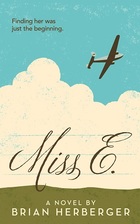
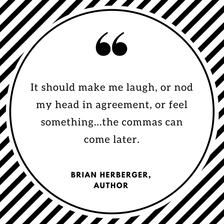
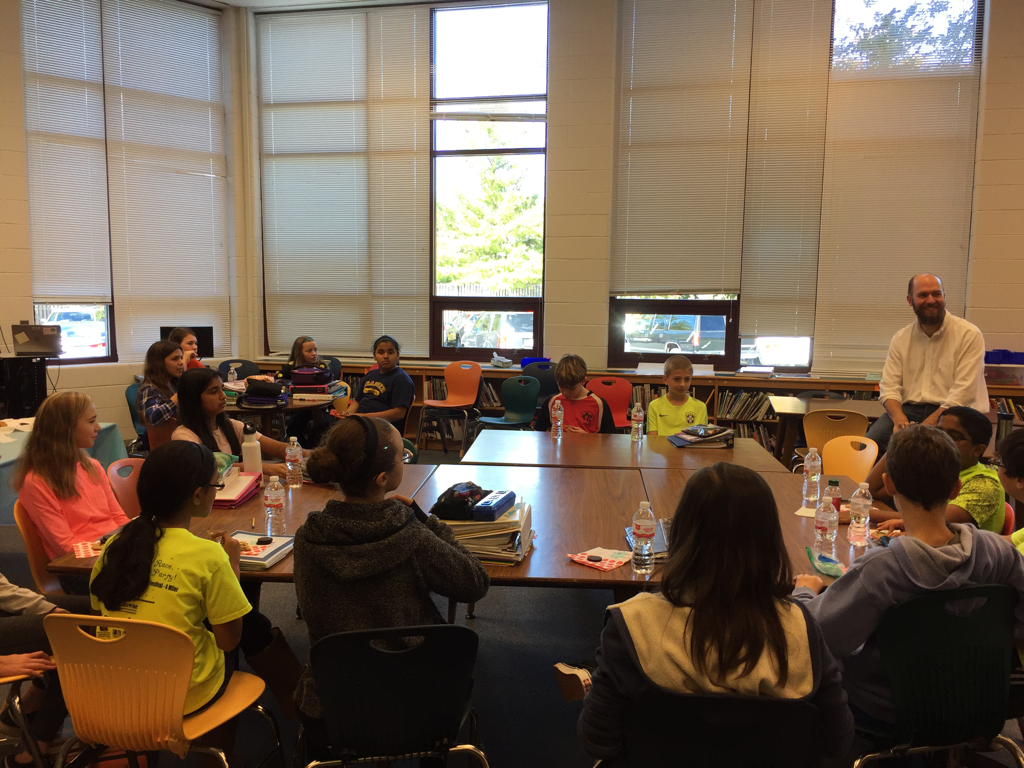
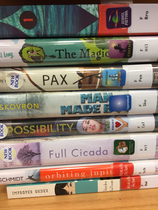
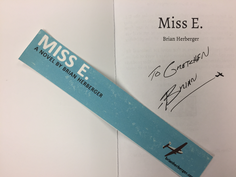





 RSS Feed
RSS Feed